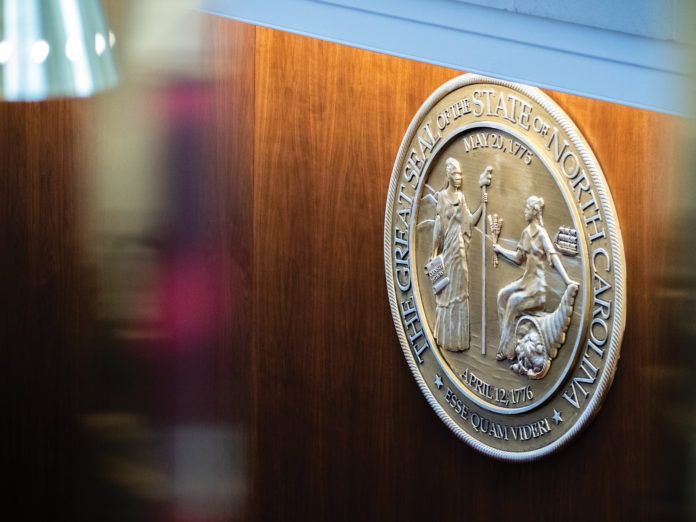After the 2021 legislative session that saw cities and towns reap tremendous infrastructure and other funding, this year’s follow-up was, well, a bit of a bore. At least as much as any legislative session can be.
That doesn’t mean that Mark Twain’s admonishment about always being aware while a legislature is in session was able to be ignored in 2022. But relative to most recent sessions, state lawmakers focused most of their attention on issues—Medicaid expansion, state employee pay raises, sports betting, and legalization of medical marijuana—not of immediate relevance to municipal governance. And even for issues that garnered all that attention, most were unable to get over the finish line to becoming law.
Like most years, the biggest task before the General Assembly was passing a state budget plan. But even that task was filled with fewer roadblocks because the even-year session involved mostly tweaks to the two-year spending plan approved in 2021 and because legislators mostly avoided placing major policy provisions in the bill.
As a result, they had approved the plan in a bipartisan vote just as the fiscal year began on July 1, with Governor Roy Cooper signing it into law shortly after.
As forecast in the two-year budget approved last year, this year’s spending plan beefed up the state programs that fund water and sewer investments, and also provided for some other key priorities of cities and towns.
Here are a few of the budget items benefiting cities:
Affordable Housing: The budget puts another $20 million into the state’s Workforce Housing Loan Program after the previous two-year budget put $170 million toward the program for 2022–23.
Infrastructure: In total, $1.5 billion will go toward infrastructure, a figure that does not include the state’s two separately funded road building and maintenance funds, the Highway Fund, and the Highway Trust Fund. There are a number of appropriations targeted for specific local government projects sprinkled throughout the plan. These include grants for parks, trails, public buildings, and other public works projects. Four municipal airports will have a total of $24 million directed to them. The state’s Clean Water State Revolving Fund and Drinking Water State Revolving Fund will receive an additional $230 million from the federal Infrastructure Investment and Jobs Act.
Resiliency/Disaster Recovery: Legislators moved $15 million from the State Emergency Response and Disaster Relief Fund to meet the state’s matching share for FEMA Public Assistance for pandemic-related expenses. It also provided $5 million of that money for debris removal for areas impacted by Tropical Storm Fred. Canton, Lillington, and Colerain will receive substantial sums for storm recovery and resiliency efforts.
Transportation: Federal receipts for state transportation projects increased $298.6 million due to the Infrastructure Investment and Jobs Act, bringing the total surface transportation federal aid programs receipts from the federal government to $1.4 billion. Total funding in the Highway Fund and Highway Trust Fund is expected to increase by $933 million, with a $109 million one-time transfer from the Highway Trust Fund to the Highway Fund to speed up right-of-way purchases for Strategic Transportation Investments Prioritization (STIP) projects. Within the $1.9 billion allocated to the Highway Trust Fund, $1.7 billion is for STIP projects, a $106 million increase over last year. This increase in funding is recurring. Also, the budget begins a transfer of state sales tax revenue, which had flowed to its general operating budget, to its road construction and maintenance, with the transfer to grow to 6 percent of general sales tax revenue by the 2024–25 budget year.
Outside of budget and funding considerations, the legislative session did include consideration of a handful of local bills looking to restrict voluntary annexation, end extra-territorial jurisdiction or otherwise compromise local land-use planning. Ultimately, bills affecting Leland and Brunswick County and Lexington were approved, though local officials did have some input on final legislation.
NCLM advocacy staff worked with local officials regarding these pieces of legislation, but also has begun to look at any broader implications and how the League can share with policymakers and the public the importance of local land-use planning when it comes to orderly growth and the provision of needed utilities to serve that growth.
In a similar vein, more legislation was approved that focused on the financial struggles of cities and towns, and their financial transparency. SB 265 Bond Info Transparency/LGC Toolkit II will lower the borrowing threshold for cities and towns on the Local Government Commission’s Unit Assistance List to set the amount at $50,000 when LGC approval is required. It would also increase bond requirements for some municipal finance officers. Following concerns expressed by NCLM and the NC Association of County Commissioners, a bill provision was dropped that would have penalized local governments that were late with audit reports by holding back sales taxes equal to 150 percent of the cost of the audit.
Finally, the City of Greenville was added to the list of cities that can hire civilian traffic investigators to investigate traffic accidents to better utilize police resources. The issue garnered significant interest in the General Assembly, with some initial pushback eventually replaced by wide support as long as those investigators’ powers were limited. The interest created by local bills may set the stage for statewide legislation in the future.














